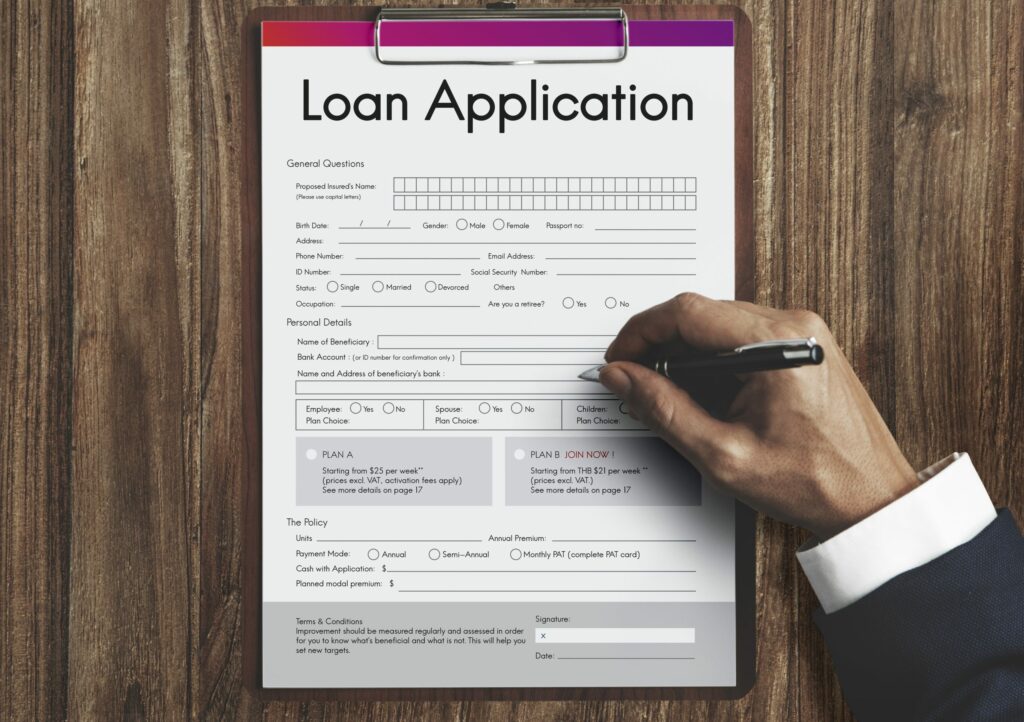Possible Reasons Why Your Personal Loan Application Got Denied

A denied personal loan can be disappointing. Most people are also puzzled. Even people with strong credit scores can get rejected, making them wonder why. In this article, we will discuss the possible reasons for a denied personal loan and a few alternatives to consider. But first, let’s define what a personal loan is.
What is a personal loan?
A personal loan is money borrowed from a lender that can be used in various ways, such as financing a big-ticket purchase like a car or a home, paying off debt, or covering significant expenses like a wedding. Personal loans can be obtained from credit unions, banks, and online lenders. They are usually unsecured loans, meaning there is no need to put anything up as collateral. Because of this, lenders base their decision on approving your application on factors such as credit history, free cash flow, and debt-to-income ratio, to name a few.
What is the loan application process?
Here’s a brief guide on how to get a personal loan.
- 1. Try to pull your credit. A higher credit score gives you a better chance of getting an approved loan. If your score is low, you can find out whether there are errors in your credit that need to be disputed or take steps to increase your credit score.
- 2. Pay off some existing debt. Lower your debt-to-income ratio as much as possible, especially if it’s below 45%.
- 3. Compare rates from multiple lenders. Once you’re done putting your finances in order, you can shop for the best rates. Compare APRs, loan amounts, payment terms, and lender reputation.
- 4. Submit the required documents. Formally apply for a personal loan. Lenders usually require pay stubs or bank statements, and other documents that contain your financial information.
- 5. Receive the funds. Once your loan is accepted, you will receive the money in a few business days. Set up your payment plan right away to avoid missed and late payments.
If your application is denied, it is essential to know why. Below are a few common reasons why banks deny personal loan applications, so the next time you apply for one, you’ll know what and what not to do.
What are the possible reasons for a denied personal loan application?
Bad credit score
Let’s get the most obvious reason out of the way. Lenders are most likely to deny your personal loan applications when you have a bad credit score. Your credit score tells banks the likelihood of you paying them back for the loan. If your track record is not very good when paying what you owe, chances are your bank will resist granting you loans.
The loan amount is too high
Lenders will consider your ability to pay back when applying for a loan. Therefore, banks will most likely deny your application when you fill out that loan application form and put in too high of an amount in the “desired loan amount” field. To avoid this mistake, use an online loan calculator. Loan calculators can tell you how much you can borrow, given your current income.
Unstable employment record
Because banks consider your ability to pay the loan off in the long run, they will look at your employment record. So if you have an unstable employment record or, worse, no employment, banks will be hesitant to grant your loan application. In addition, lenders will require particular employment tenure or length of service, which is why banks typically need you to submit a certificate of employment.
Insufficient income
You will most likely not get approved when you don’t make enough to apply for a loan. This is because you need to be able to make monthly loan repayments. If you do not make enough money to pay them and at the same time address your basic needs as well, lenders will not grant you a loan. Again, this is because you are most likely to use your income for your basic needs than to pay off the loan.
You have too much debt
When you apply for a personal loan, your bank will do a background check to see if you have any outstanding loans. This is, so they are sure that you can pay. Meet the minimum income requirement and have a good credit score but have several outstanding loans. They will most likely be hesitant to grant you another one. The more loans you have, the less capacity you have to repay an additional loan.
How you fill out the loan application
Lenders might not grant you your personal loan if you have any mistakes or inconsistencies in your loan application. Therefore, your data needs to be complete, correct, and consistent. Lying on your application will get you denied and could land you on your bank’s wrong side.
What are the alternatives to personal loans?
If a personal loan is not your best option at the moment, there are alternatives. Here are some of them.
Credit card
This can work for small and urgent expenses and will work best for you if you can pay off your balance and interest at the end of each month.
Home equity loan
This type of loan allows you to borrow money against the equity you have in your home, usually at a lower interest rate than other types of loans.
401(k) loan
Another option is to borrow money from your retirement account. This works if you have a stable job and can ensure you can pay off the debt in less than five years.
A personal line of credit
A lender makes a certain amount of money available whenever you need it. It lets you borrow on a rolling basis with a limit. This type of loan may offer higher credit limits than credit cards.
Friends and relatives
Suppose you have friends and relatives with whom you are comfortable sharing your financial situation and borrowing money. In that case, it might be worth a try. Ensure you draft a repayment plan and discuss it beforehand to avoid misunderstandings.
Final Thoughts
Consider the list above the next time you apply for a personal loan. Make sure you fill out the application completely and honestly, have a good credit score and enough income to make the payments, and have been employed for a while.
Image by rawpixel.com on Freepik




